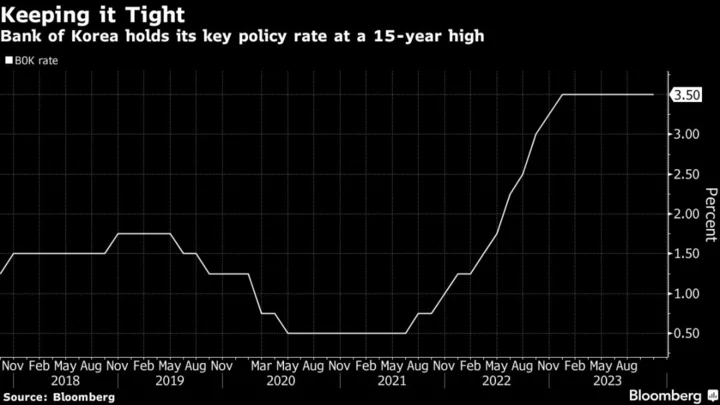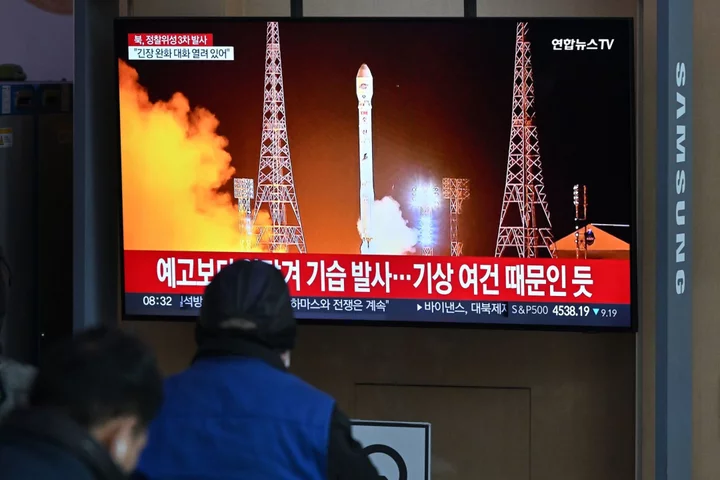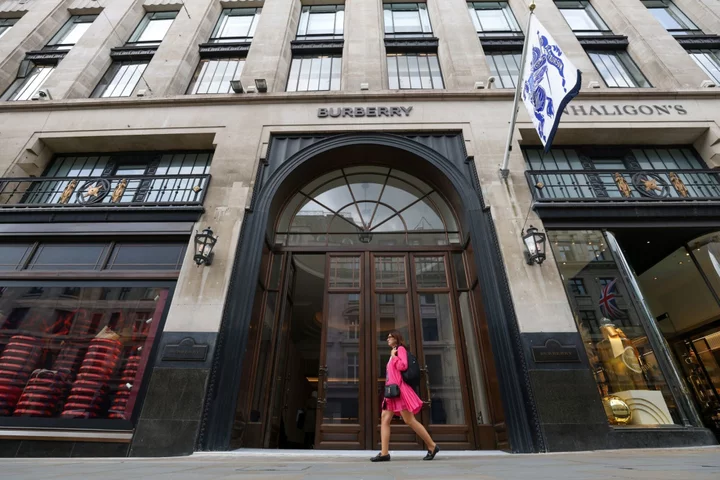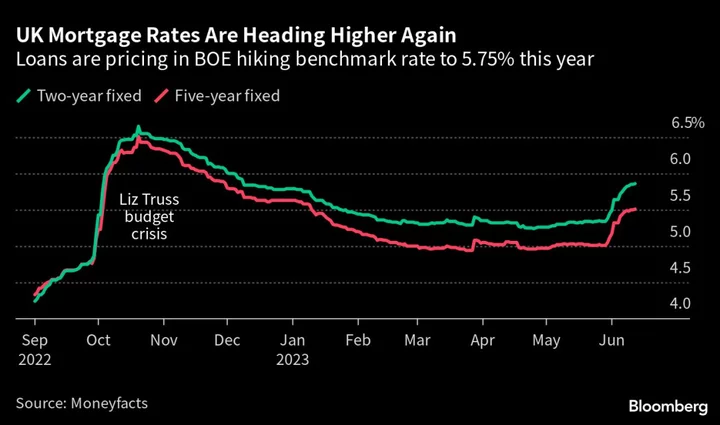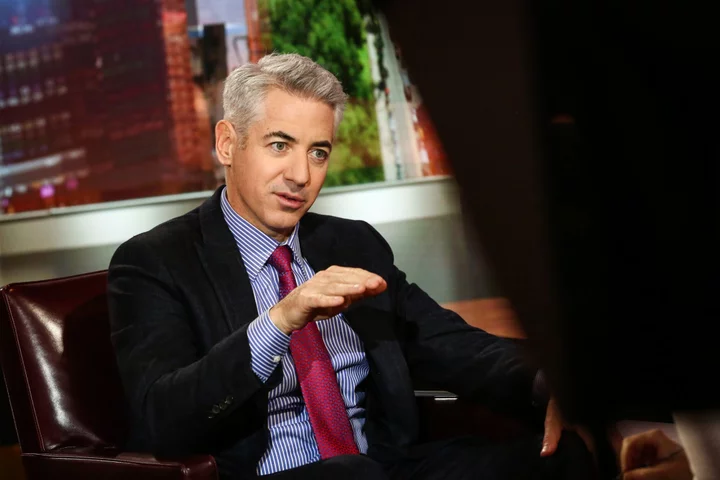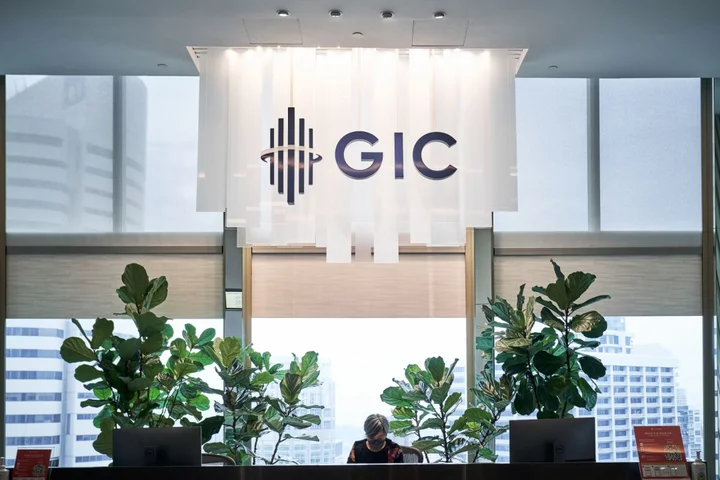The Bank of Korea held its key interest rate steady for a seventh straight meeting and raised its inflation forecasts as it extends its fight against sticky prices into 2024.
The central bank kept the seven-day repurchase rate at 3.5% on Thursday in its last decision of the year, a move forecast by all 22 economists surveyed by Bloomberg. The policy rate has stayed at that level since authorities last hiked in January.
The BOK raised its price forecast for next year to 2.6% from 2.4% and nudged up its projection for this year to 3.6% in an indication that it will take longer to cool inflation than previously thought.
The decision to stand pat comes after inflation accelerated unexpectedly in October and household debt reached a record amount over the summer, reinforcing the case for the monetary policy committee to keep the rate restrictive for longer.
Recovering exports on the back of rebounding demand for semiconductors are giving authorities confidence they can afford to keep the rate at a 15-year high even as broader activity in some overseas economies slows.
“The BOK may recognize the recent external tailwind, but remain vigilant on the uncertainties,” Bank of America economists Benson Wu and Ting Him Ho said in a report before the decision. “The still elevated household debt growth may restrict the BOK from easing anytime soon.”
Still, there are signs that economic momentum is starting to decelerate. Consumer confidence has fallen for four months in a row, dipping below a key threshold to indicate pessimism now prevails over optimism. Business confidence also remains shaky after dropping from this year’s high in June.
The central bank fractionally lowered its growth forecast for next year to 2.1%, while keeping its projection for this year at 1.4%.
While the higher inflation forecasts point to a need to keep policy restrictive, market participants are nevertheless focusing on the timing of an expected pivot to an easing cycle some time in 2024.
One factor will be the trajectory of US monetary policy. Economists surveyed by Bloomberg expect the Fed to start loosening monetary policy in the second quarter of next year. Still they see the bank taking a gradual approach, keeping rates relatively high through the end of 2025.
The latest inflation revision suggests the BOK maintains a willingness to keep the rate high for longer, even though the downgraded growth forecast also opens room for it to respond to economic uncertainties flexibly, according to Cho Yong-gu, an analyst at Shinyoung Securities.
“A rate cut in the second half still remains a sufficient possibility,” he said.
BOK watchers will also be interested in knowing how united the board remains. Last month one member suggested the board should be open to the possibility of lowering rates in the near future if needed as well as raising them, in contrast to others who only flagged a willingness to hike further if needed.
Governor Rhee Chang-yong will reveal that information and also disclose whether there were any dissenters to the latest decision at a press conference starting around 11:10 a.m. in Seoul.
(Updates with revised inflation and growth forecasts, economist comment)

